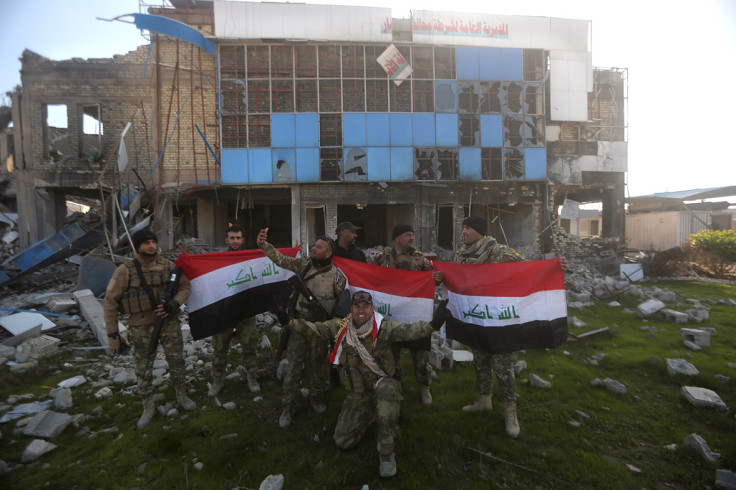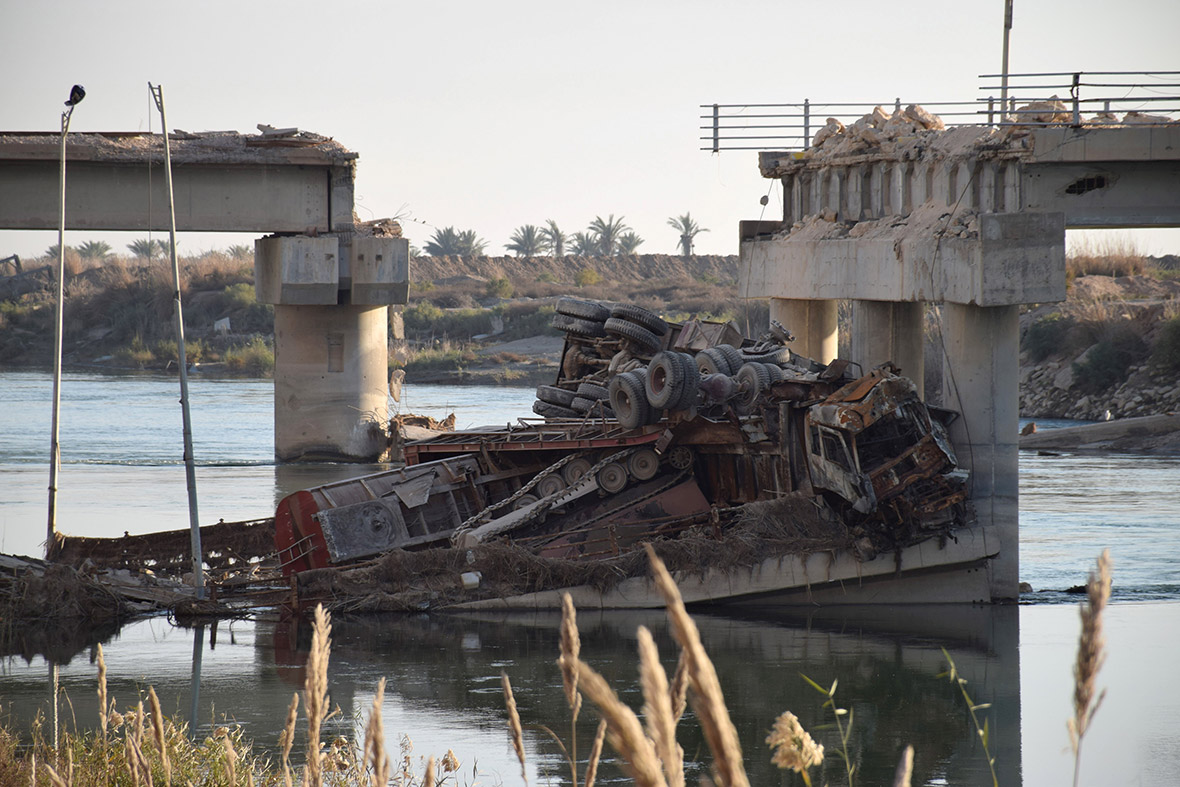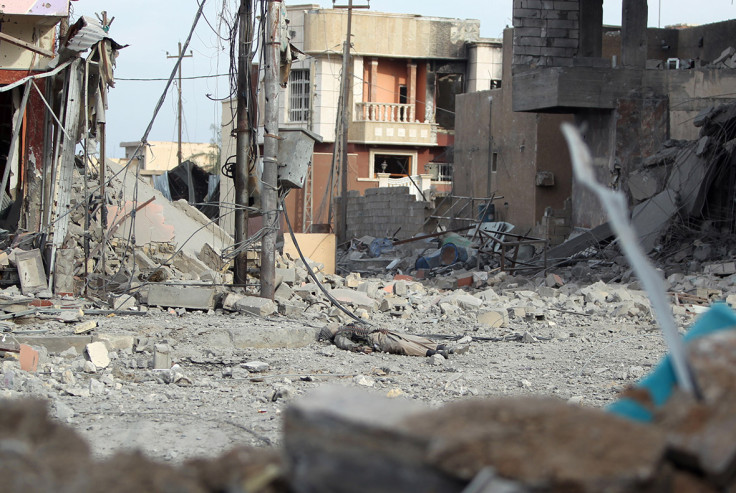Inside Ramadi after Isis: Iraqi PM Haider al-Abadi says Daesh will be terminated in 2016
Iraqi forces, backed by US-led airstrike,s have driven Islamic State (Isis) out of the centre of Ramadi. The national flag is flying over the main government complex in the city, a provincial capital west of Baghdad, which fell to the jihadi extremists in May 2015.

Triumphant Iraqi Prime Minister Haider al-Abadi declared that the coming year would see his forces defeat Daesh (IS). "2016 will be the year of the big and final victory, when Daesh's presence in Iraq will be terminated," Abadi said in a speech broadcast on state television. "We are coming to liberate Mosul and it will be the fatal and final blow to Daesh," he added. Mosul, northern Iraq's main city, is by far the largest population centre in the self-proclaimed caliphate IS rules in Iraq and Syria.
After encircling the provincial capital for weeks, Iraqi forces launched an assault to retake it and made a final push to seize the central administration complex on Sunday (27 December). Their progress had been slowed by explosives planted in streets and booby-trapped buildings. Colonel Steve Warren, a US military spokesman in Baghdad, said the coalition carried out more than 630 air strikes, in addition to training security forces. After overrunning Ramadi, IS destroyed all the bridges around the city. It also demolished the Anbar operations command centre and fanned out into the city's residential areas.
On 28 December, General Ismail al-Mahlawi, head of military operations in Anbar, clarified that IS fighters still control 30%of Ramadi. "We can't say that Ramadi is fully liberated," he reported. "There are still neighbourhoods under their control and there are still pockets of resistance."








A third of Iraqi territory fell to jihadist fighters in mid-2014. The Iraqi army was humiliated in that advance, abandoning city after city and leaving fleets of American armoured vehicles and other weapons in the militants' hands. One of the main challenges of the conflict since then has been rebuilding Iraq's army into a force capable of capturing and holding territory. Baghdad has said for months it would prove its forces' rebuilt capability by rolling back militant advances in Anbar, a mainly Sunni province encompassing the fertile Euphrates River valley from Baghdad's outskirts to the Syrian border.
The jihadist group still controls much of northern and western Iraq, as well as vast swathes of neighbouring Syria. However, General Lloyd J Austin III, the head of US Central Command, said: "Coupled with other recent IS losses across Iraq and Syria... the seizure of the Government Centre clearly demonstrates that the enemy is losing momentum as they steadily cede territory." IS lost the town Sinjar in Iraq last month, and areas across the border in Syria at the same time. Air strikes have destroyed Syrian oil facilities and killed several IS leaders in recent weeks.
Mosul, 400 km (250 miles) north of Baghdad, has been designated by the government as the next target for Iraq's armed forces. Iraqi Finance Minister Hoshiyar Zebari said the country's army will need Kurdish fighters' help to retake the largest city under the control of IS.

IS released a new message purportedly from its reclusive leader on Saturday (26 December), claiming that his self-styled "caliphate" is doing well. Abu Bakr al-Baghdadi said air strikes by the international coalition only increase his group's determination and resolve. The message was al-Baghdadi's first since May. "It is unprecedented in the history of our Ummah [Islamic nation] that all the world came against it in one battle, as it is happening today. It is the battle of all the disbelievers against all the Muslims," al-Baghdadi said. He added the US-led alliance does "not scare us... nor do they scatter our resolve because we are the victors in any event."
Al-Baghdadi taunted the US for not putting boots on the ground. "They do not dare to come, because their hearts are full of fear from the mujahideen."
In the audio, al-Baghdadi warned nations taking part in the war against IS by saying: "We promise you, God permitting, that whoever participates in the war against the Islamic State will pay the price dearly." He urged Muslims world over to join the IS fight, saying it is their Islamic duty to rise up everywhere.
Should we cease using Islamic State, Isis or Isil and begin using 'Daesh'?
IS fighters and leaders hate the word - it's an Arabic acronym of "al-Dawla al-Islamiya fi Iraq wa ash-Sham" – meaning the Islamic State of Iraq and al-Shams – but when spoken Daesh sounds similar to the Arabic words translating to "the sowers of discord" (Dahes) or "one who crushes underfoot" (Daes). IS threatened "to cut the tongue of anyone who publicly used the acronym Daesh, instead of referring to the group by its full name".
© Copyright IBTimes 2024. All rights reserved.







